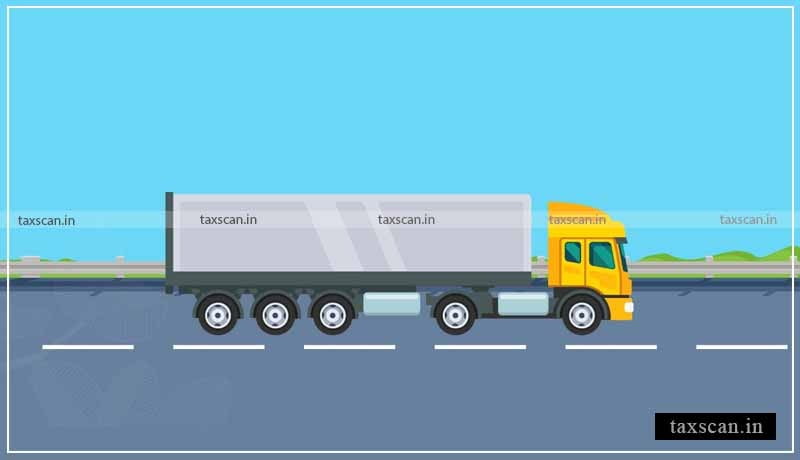Sale in Transit under the GST Law – With Real Life Examples and Case Law

Sale in transit means interstate sale effected by transfer of documents of title to goods when the goods are in movement from one State to another. It is a situation where selling the goods by a buyer before reaching the same to him by instructing the seller to deliver the goods to a different buyer.
During the Pre –GST era up to 30.06.2017 this transaction was governed by section 6(2) of the Central Sales Tax Act [the CST Act for short] whereas it is covered by the various provisions of the Central Goods & Service Tax Act (CGST Act for short), State Goods & Service Tax Act (SGST Act for short) and the Integrated Goods & Service Tax Act (IGST Act for short), especially come under section 10 (1) (b) of the IGST Act. However alcoholic liquor for human consumption, petroleum crude, high-speed diesel, petrol, natural gas, and aviation turbine fuel are still governed by the CST Act since these goods are outside GST.
It is better to explain the subject in light of two real-life situations
Situation -1
‘A’ being a manufacturer located in Delhi sells goods to ‘B’, a trader in Kolkata. However before the commencement of the movement of goods or in the course of movement of goods from Delhi to Kolkata ‘B’ got a purchase order for the same goods from ‘C’, a dealer in Hyderabad and instructs ‘A’ in Delhi to deliver the goods to ‘C’ in Hyderabad. This is a sale in transit for which during the Pre –GST era ‘B’ in Kolkata should have furnished “C” Form to ‘A’ in Delhi against which ‘A’ avails concessional rate of tax. Apart from that, ‘C’ in Hyderabad should have furnished “C” Form to ‘B’ in Kolkata to get an exemption from the levy of tax. Simultaneously the purchasing dealers should have furnished ‘E.1’ Forms to their respective sellers.
Situation -2
‘A’ located in Delhi sells goods to ‘B’ in Kolkata. However before the commencement of the movement of goods or in the course of movement of goods from Delhi to Kolkata, ‘B’ got a purchase order for the same goods from ‘C’ in Hyderabad. Meanwhile ‘C’ in Hyderabad got a purchase order for the same goods from ‘D’ in Bengaluru. Ultimately in compliance with purchase orders in a chain, ‘A’ in Delhi supplies goods to ‘B’ in Kolkata with consignee address of ‘D’ and the goods leave the premises of ‘A’ and moves to ‘D’ in Bengaluru. In this case ‘A’ bills to ‘B’, ‘B’ bills to ‘C’, and ‘C’ bills to ‘D’ which involves three different supplies for a single movement of goods. This is a usual trade practice prevailing in the country. Under the Pre-GST scenario Situation, -1 is also identical to Situation -2 with a slight difference of having a further stage of furnishing “C” Forms and “E.1” Forms.
However, in the GST period [from 01.07.2017 onwards], no such statutory forms are necessary to effect such transactions. The only condition is to issue valid tax invoices for each transaction by the respective sellers. Under GST, the invoice can be issued in ‘billed to/shipped to format’ also, which means in the invoice the seller could show the billing address (billed to) as well as the delivery address (shipped to). Thus in the instant case, ‘A’ could bill to ‘B’ in Kolkata with a delivery address to ‘D’ in Bengaluru (shipped to). Likewise ‘B’ could bill to ‘C’ in Hyderabad with delivery address as ‘D’ in Bengaluru.
E – Way Bill for sale in transit
Regarding the transportation of goods in these cases, a single e-way bill is only required. E -way bill (Electronic –Way Bill) has to be generated when there is a movement of goods in a vehicle/ conveyance of value more than ₹ 50,000 (either each Invoice or in aggregate of all invoices in a vehicle/conveyance) in relation to a ‘supply’, for reasons other than a ‘supply’ (Eg: sales return) and due to inward ‘supply’ from an unregistered person). Moreover, the E-way bill can be generated by either of the suppliers in the chain as portrayed below.
In Situation No.1, ‘A’ in Delhi has to raise an e-way bill addressed to ‘B’ and in the place of “Ship To” address of ‘C’ in Hyderabad has to be given. But also ‘B’ has to raise an e-way bill
for his records and documentation purposes. ‘B’ can raise the e-way bill at any time before delivering goods at Hyderabad. ‘B’ has to raise an e-way bill where he has to mention bill from (self-details automatically has taken) and in the place of “Dispatch From” address of ‘A’ because the goods actually dispatched from the place of ‘A’.
Likewise, ‘B’ can mention the details of the same transporter as mentioned by ‘A’ in case there is no change in transporter between dispatch and delivery. If there any change occurs after generating an e-way bill, ‘B’ can also update/edit their transporter/vehicle details at the e-way bill portal in the section of Update vehicle details. For ease of understanding the details of the generation of e –waybills by different suppliers are explained below with regard to Situation No.1 where ‘A’,‘B’ & ‘C’ only are involved.
Narration -1: Where an e-way bill is generated by ‘A’
The following fields in Part-A of GST FORM EWB-01 shall be filled in
| 1 | Bill From | In this field details of ‘A’ in Delhi are to be filled in |
| 2 | Dispatch From | The principal or additional place of business of ‘A’ is to be shown |
| 3 | Bill To | In this field details of ‘B’ in Kolkata are to be filled in |
| 4 | Ship To | In this field address of ‘C’ in Hyderabad is to be filled in |
| 5 | Invoice Details | Details of Invoice- issued by ‘A’ are to be filled in |
Narration -2: Where e-Way Bill is generated by ‘B’
The following fields in Part -A of GST FORM EWB-01shall be filled in:
| 1 | Bill From | In this field details of ‘B’ in Kolkata are to be filled in |
| 2 | Dispatch From | This is the place from where goods are actually dispatched. It may be the principal or additional place of business of ‘A’ |
| 3 | Bill To | In this field details of ‘C’ are supposed to be filled in |
| 4 | Ship To | In this field address of ‘C’ is to be filled in |
| 5 | Invoice Details | Details of Invoice issued by ‘B’ are to be shown |
For Situation No 2 also, necessary changes may be made in the e-way bill in the above manner.
Input Tax Credit
B, C & D in Situation No.2 are eligible for an input tax credit under the IGST Act on the strength of tax invoices in support of the respective purchases. Even in cases where e-way bills are not generated by the subsequent buyers/sellers, that would not disentitle the eligibility of input tax credit as the e-way bill has nothing to with the eligibility of input tax credit under GST as input tax creditis a credit of GST paid on the purchase of goods or services or both which can be claimed on the strength of tax invoices and other conditions such as filing of returns, etc.
Case Law
The judgment in WP[C] No. 31965 of 2019 dated: 27.11.2019 (M/s. Polycab India Ltd Vs. State of Kerala delivered by the Hon’ble High Court of Kerala, in a detention matter is relevant to note in this context. The case of the petitioner (M/s. Polycab India Ltd) was that they sold goods from Panchmahal in Gujarat to the purchaser in Uttarakhand, and pursuant to the instructions received from the purchaser, the goods were consigned to a destination in Trivandrum, Kerala. The tax invoice issued by the petitioner in this regard, under the CGST Act and Rules, clearly indicated that the sale was from the vendor in Gujarat to the purchaser in Uttarakhand and the delivery was to be effected at Trivandrum. The E-way bill that was prepared for covering the transportation also indicated the same details.
Nevertheless, the goods were detained by the officers of the Kerala GST officers on the ground that there was a possibility of evasion of payment of IGST in Kerala and further, that the consignee of the goods in Kerala was indicated as an unregistered dealer at the time of detention of the goods. Finding no infirmity in the subject transaction, the Hon’ble Court observed that there was no justification for the detention of the goods in terms of Section 129 of the CGST/SGST Act. The e- waybill clearly covered the transaction from Gujarat to Trivandrum, and the invoice that covered the transaction was a ‘Bill to/ship to’ model, which was permissible under the CGST/SGST Act and Rules. As regards the registration details of the consignee, it is stated that while at the time of detention, it was assumed that the consignee was an unregistered dealer, immediately thereafter, the details of the registration of the consignee was made available to the respondent, and the fact of receipt of such information is acknowledged. Arriving at these conclusions the consignment was ordered to be released unconditionally subject to adjudication by the proper officer under the CGST/SGST Act.

Aji V Dev is an Advocate practicing in the High Court of Kerala.


